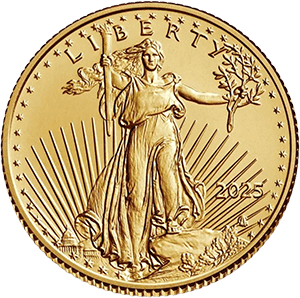
In a rapidly evolving global economy, shifts in economic power and currency dynamics have the potential to influence nations' financial stability and strategies. The BRICS (Brazil, Russia, India, China, and South Africa) alliance has emerged as a significant player in this landscape, raising questions about its impact on the US dollar, the US economy, and why Americans are increasingly turning to gold as a safe haven.
This comprehensive blog delves into these multifaceted topics, providing insights into how the BRICS alliance might influence the US dollar, economic dynamics, and the surge in Americans seeking refuge in gold investments.
Understanding BRICS and Their Economic Clout:
BRICS, a coalition of five major emerging economies, has gained substantial economic significance since its formation in 2001. Comprising Brazil, Russia, India, China, and South Africa, BRICS collectively represents about 42% of the world's population and a significant portion of global GDP. These nations have utilized their combined influence to pursue mutual goals, particularly in the realms of trade, economic development, and political cooperation.
BRICS' Potential Impact on the US Dollar:
Trade Agreements and Currency Diversification: One of the ways BRICS challenges the influence of the US dollar is by fostering trade agreements that circumvent dollar-based transactions. The alliance has actively explored alternative payment mechanisms to reduce dependency on the dollar. As BRICS nations engage in trade with one another using their own currencies, the demand for the US dollar may decrease, potentially affecting its value.
Reduced Reliance on the US Dollar: By diversifying their foreign exchange reserves away from the US dollar, BRICS nations aim to mitigate currency risk and potentially weaken the dollar's global dominance. This shift could impact the dollar's role as the world's primary reserve currency, a position it has held for decades.

Ripple Effects on the US Economy:
Trade Balance and Competitiveness: A decline in the global demand for the US dollar could lead to a weaker exchange rate. While this might boost US exports due to improved competitiveness, it could also drive up import prices, potentially affecting domestic inflation and consumer purchasing power.
Implications for Investment and Debt: A decrease in the value of the US dollar could impact foreign investors' appetite for US assets, such as Treasury bonds. Lower demand for US government debt could result in higher borrowing costs, affecting the US government's ability to manage its debt.
Americans' Dash for Gold: The Safe-Haven Trend:
Historical Significance of Gold: Throughout history, gold has been a symbol of value and stability. In times of economic uncertainty, political turmoil, or currency fluctuations, gold has often been sought as a safe haven due to its intrinsic worth and limited supply.
Economic Uncertainty and Financial Security: The ongoing global economic uncertainties, including geopolitical tensions and fluctuating markets, have led Americans to seek financial security beyond traditional investments. Gold's reputation as a hedge against inflation and economic instability makes it an appealing option for those seeking to preserve their wealth.
Role of Gold in Portfolio Diversification: Gold's role in portfolio diversification has gained prominence as investors seek to balance risk and reward. Gold's historical lack of correlation with other asset classes means that adding it to an investment portfolio can enhance its resilience to market fluctuations.
Conclusion:
As the BRICS alliance continues to strengthen its economic position and challenge the established norms, its potential impact on the US dollar and the US economy cannot be ignored. While the precise outcomes remain complex and multifaceted, it's evident that the alliance's efforts to reduce dependency on the US dollar and foster alternative economic structures have the potential to reshape global dynamics.
Simultaneously, the surge in Americans turning to gold as a safe haven reflects the enduring appeal of this precious metal as a store of value in times of uncertainty. The historical significance of gold, coupled with its potential to provide financial security and diversification benefits, positions it as a key player in the evolving economic landscape.
As nations and individuals navigate the ever-changing currents of global finance, understanding these dynamics and making informed decisions becomes paramount. Whether through exploring the implications of BRICS on the US economy or recognizing the allure of gold's timeless stability, the pursuit of financial resilience remains a constant endeavor in an interconnected world.
Our advisors are standing by to answer your questions about the information in this blog, and to help you diversify into the safe-haven of Gold.









